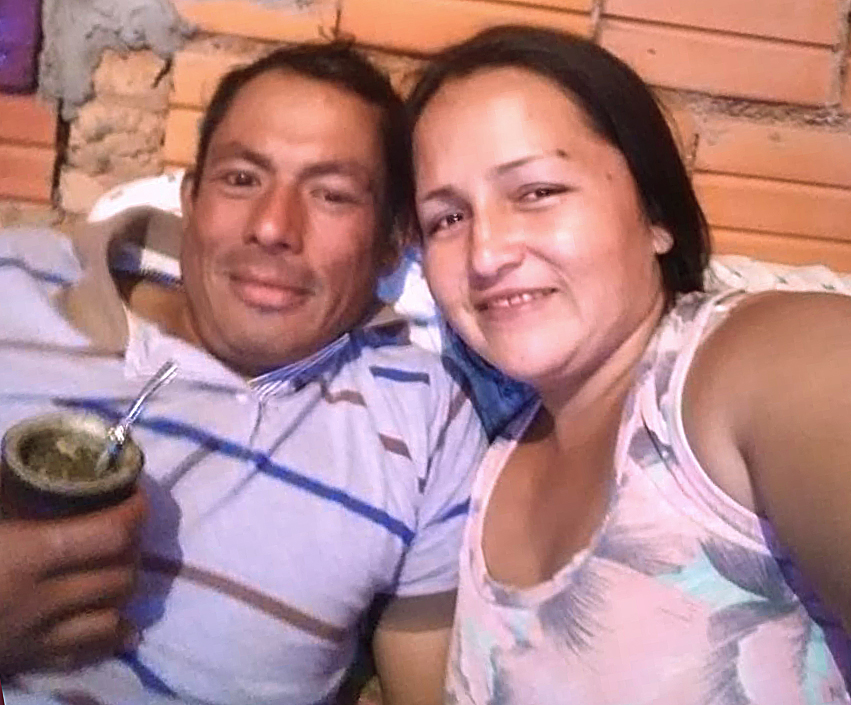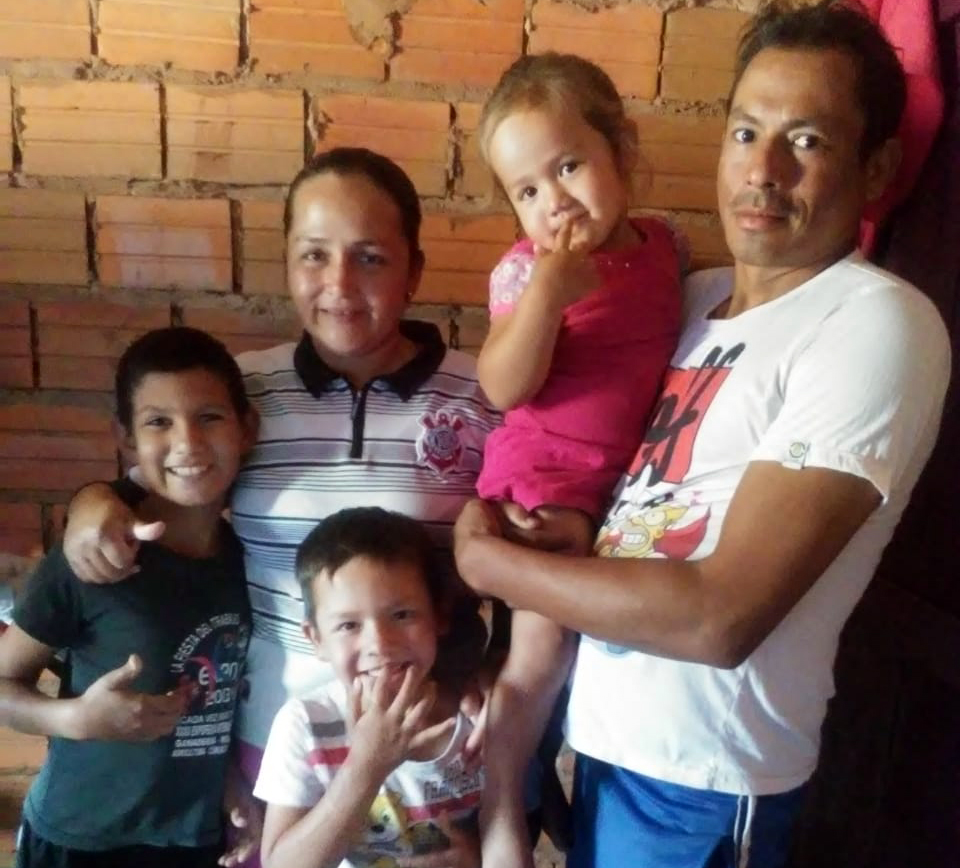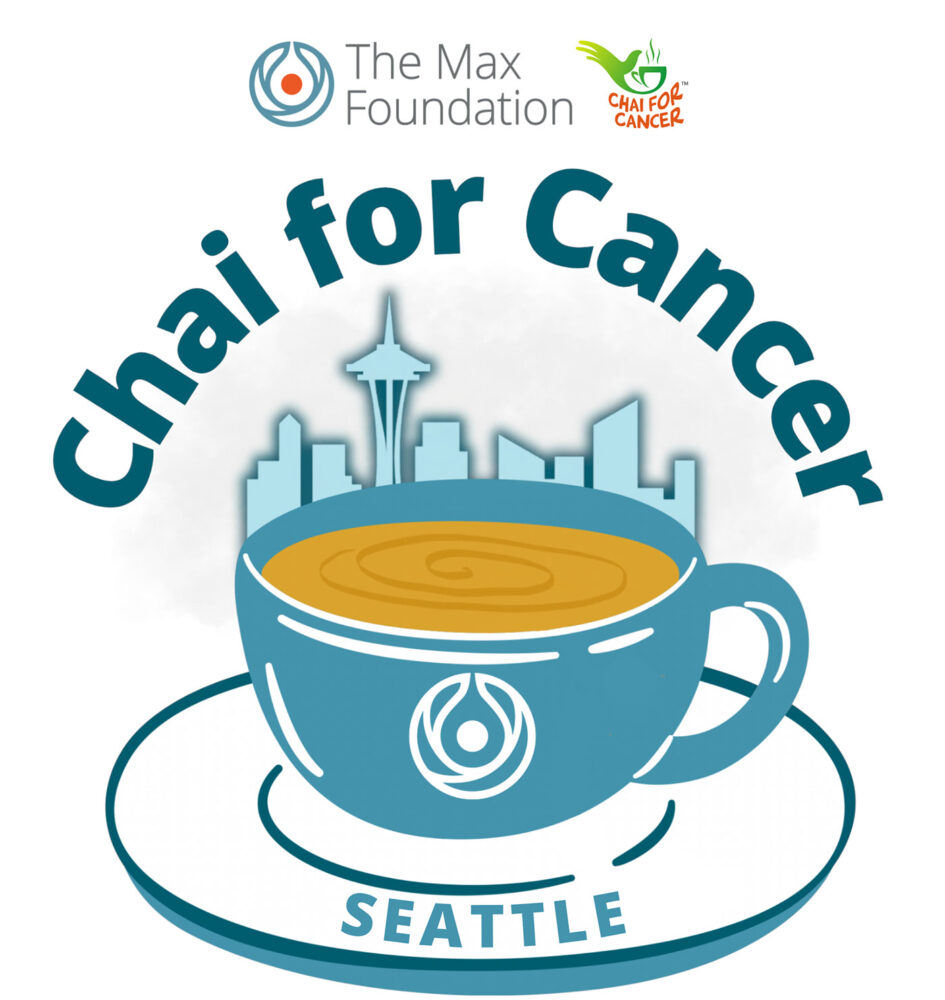Osbaldo lives in Luque, Paraguay, where he works as a butcher at the local market. He’s 37 years old, married, and has three kids ages ten, five, and two.
In 2008, Osbaldo was diagnosed with chronic myeloid leukemia (CML) at the young age of 24. In 2016, after trying several treatments that failed to control his disease, Osbaldo joined The Max Foundation’s ponatinib (ICLUSIG®) program, in collaboration with Takeda. Osbaldo remains on the treatment today and continues to respond well.
We are honored to have Osbaldo share his journey with cancer with us and shed light on how access to vital cancer medication gives him and his family hope.
Facing cancer at age 24
When I found out about my diagnosis, I got very sad. The information I had was that I could die, so I was very sad to think that I couldn’t do anything about it. I was panicking and wondering: “Why me? What did I do wrong for this to happen to me?”
Many things crossed my mind. I had the support of my parents, friends and the neighborhood priest. I was 24 years old, was in full youth and I really felt bad and was afraid. I knew this was going to change my life. I had to stay in the hospital for 12 days, and there I received a lot of encouragement from the doctors and met people who helped me spiritually.
Searching for the right treatment
After three years of taking my initial treatment, I stopped responding. Doctors switched me to a second treatment, and then a third, but both medications made me feel bad and they didn’t control my cancer. Then I stopped taking treatment all together, and I interrupted the visits to the doctor for two years. At one point my spleen became swollen and I started to feel very bad. At that time, I had to be admitted into the hospital for dengue fever, and it was then when I resumed my {cancer} tests and medical controls.
I started treatment with my second medication again. I took it for a while but there was still no response. Then I had the opportunity to travel to Argentina to have the T3151 mutation test, and the result was that I had the mutation and the only option for me was to take ponatinib.
Access to medicine and hope
My physician, Dr. Centurión, asked The Max Foundation for help, and luckily, I was able to receive {ponatinib} very quickly.
I’m very thankful to Takeda because I have the opportunity to have access to treatment, but not only for me and the patients from Paraguay, I’m also thankful that they help people all over the world. We have another chance now; we extend our life and we have more hope.
I’m also very grateful to The Max Foundation, and to the physicians who treated me and did their best so that I could access the treatment, for caring for us and following-up on our treatment.
Having access to treatment means having one more chance, having the strength to move forward. I can do almost everything.

I have a family, I have three children, I have a house. My priority is to work to have a good life and not have to depend on others.
My children and family are always by my side supporting me—they give me hope and strength.
To those who still cannot access the treatment they need, I would tell them not to lose hope, to trust in God and the professionals and doctors that will always be willing to help and give their all so that their patients are healthy. I would tell them to be strong, because the fight continues. Do not give up!


